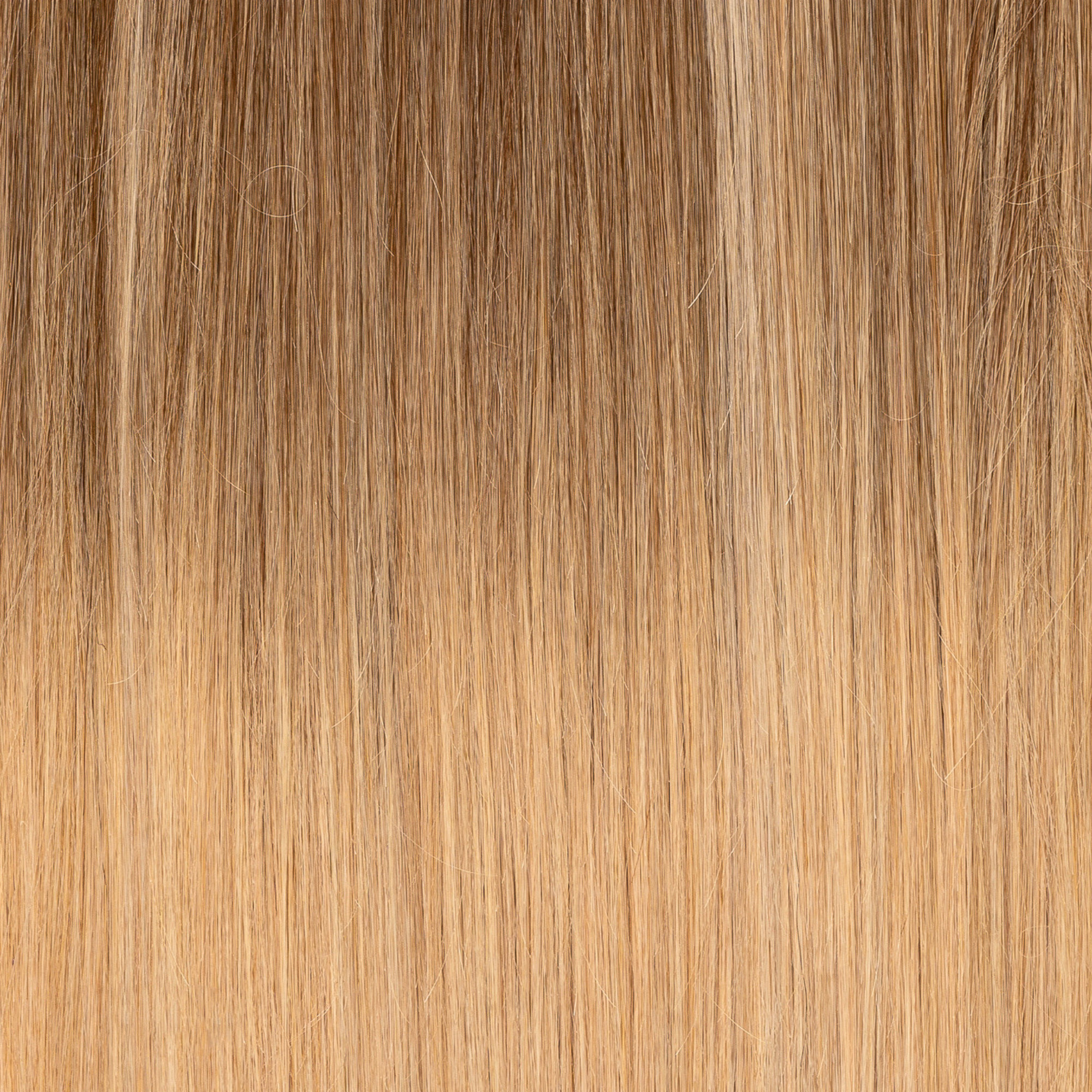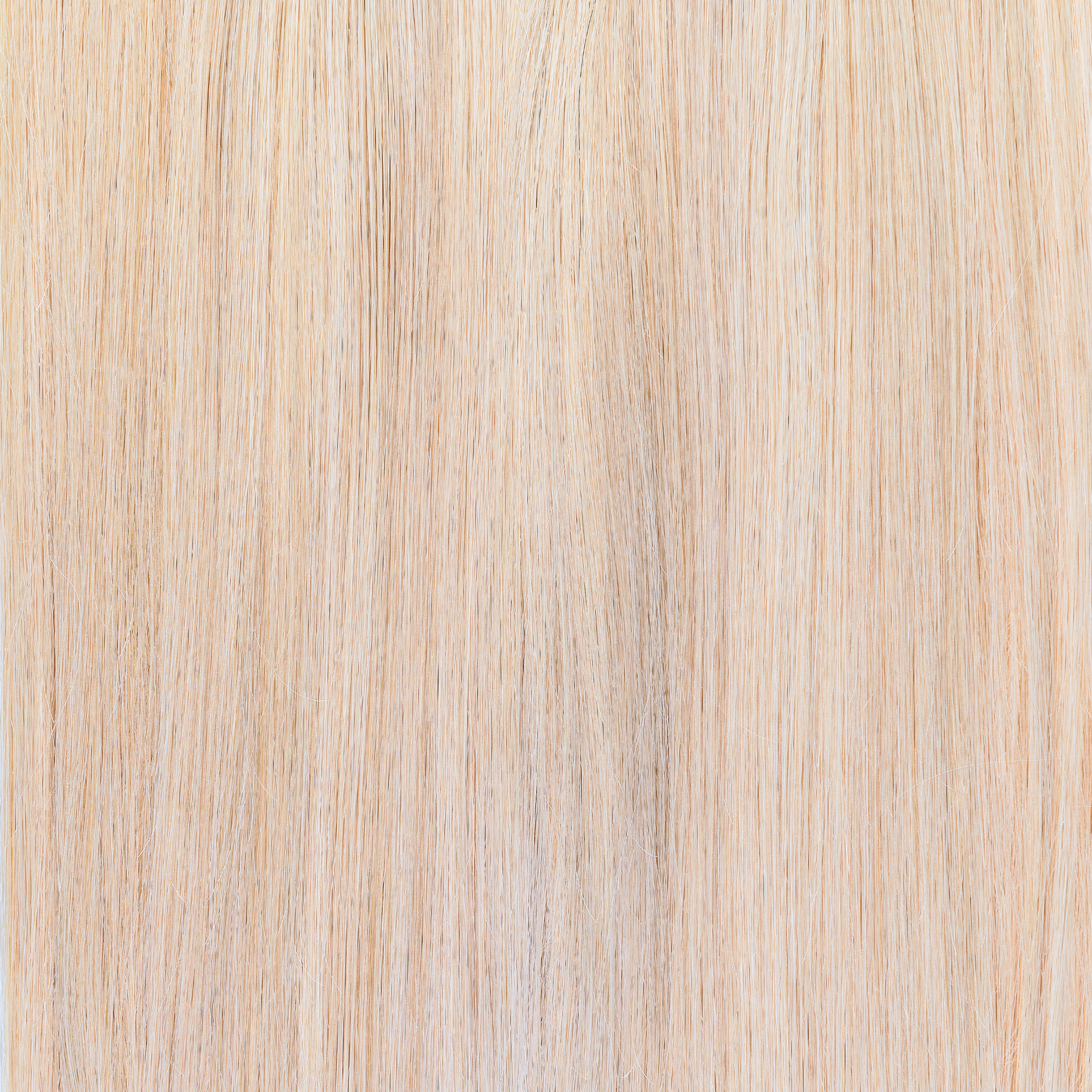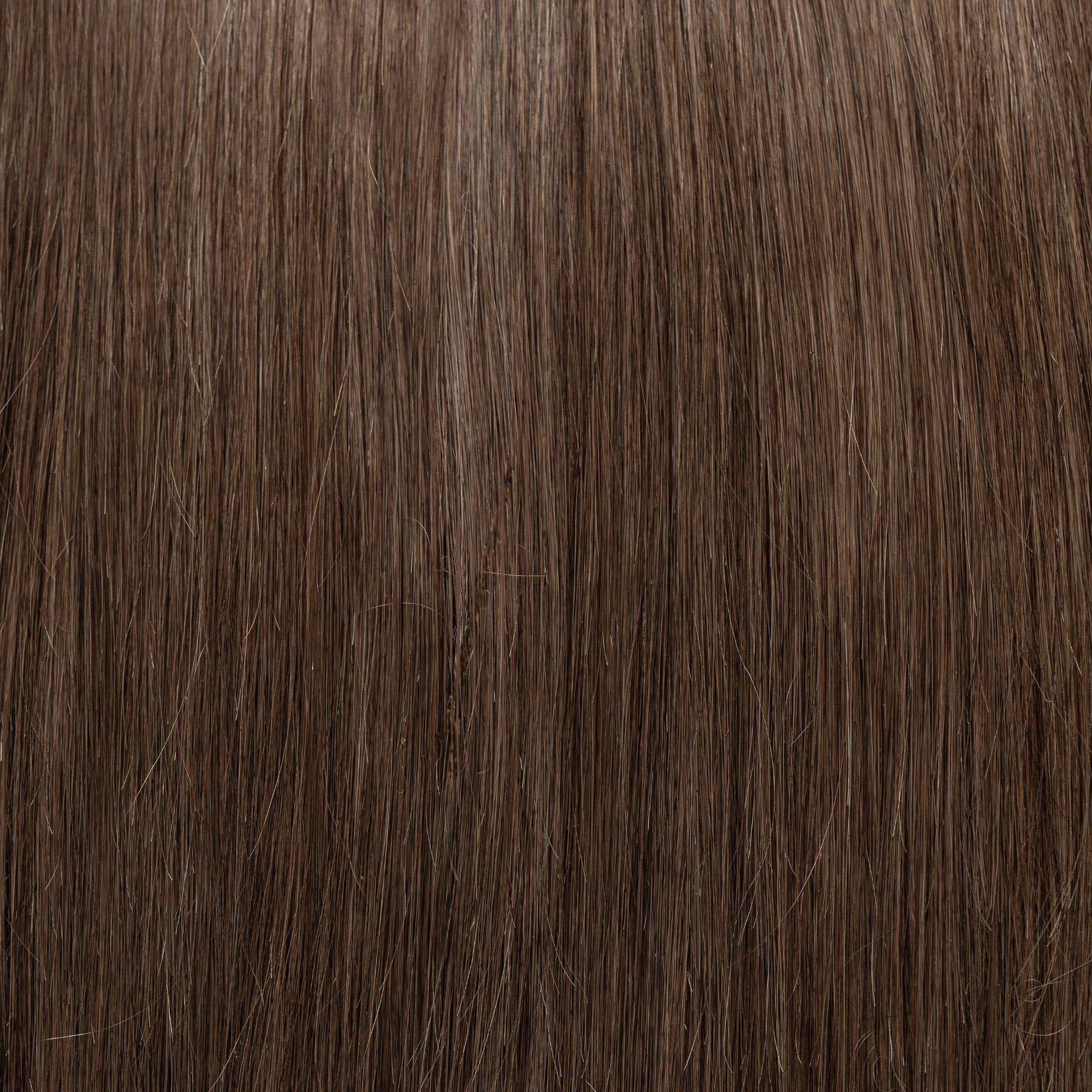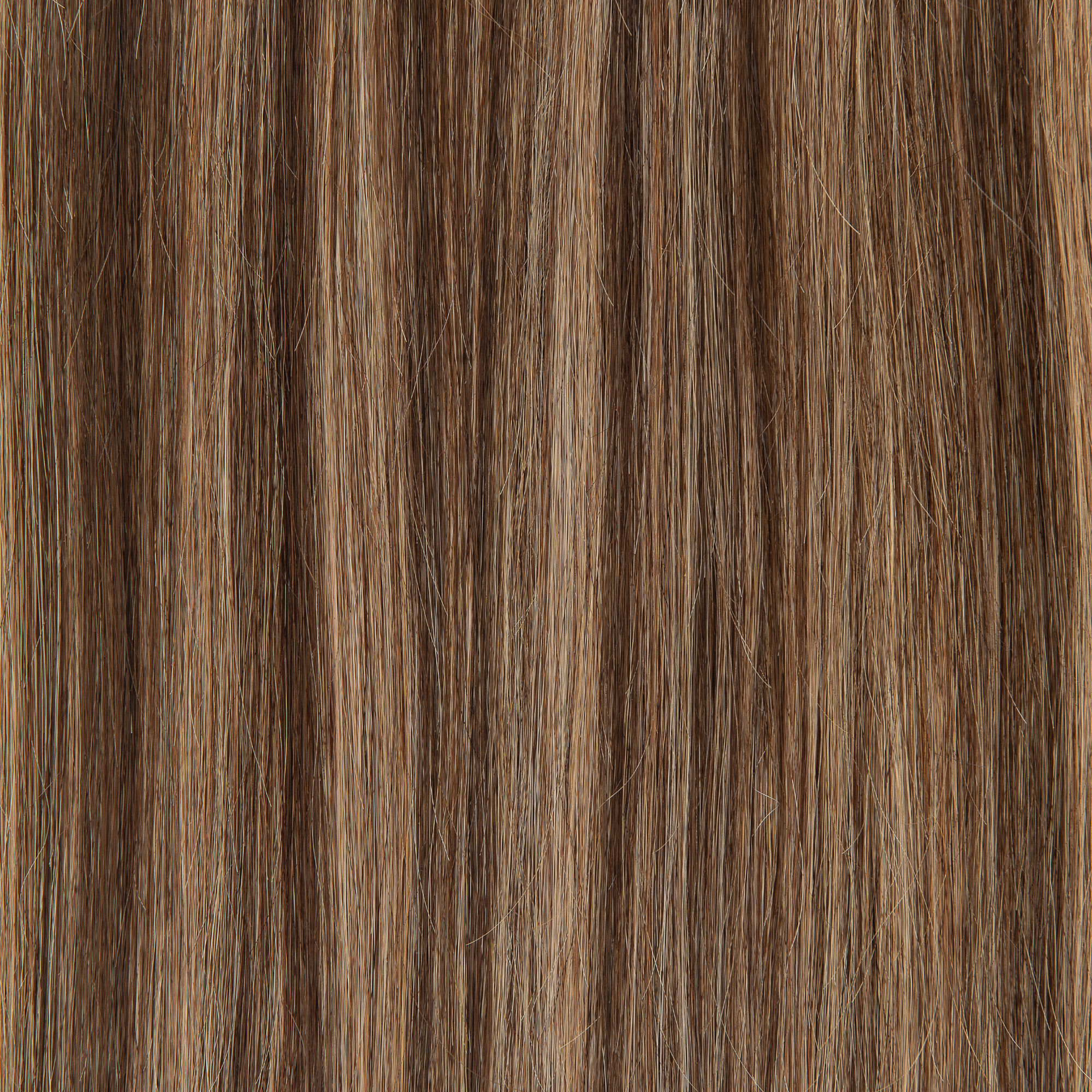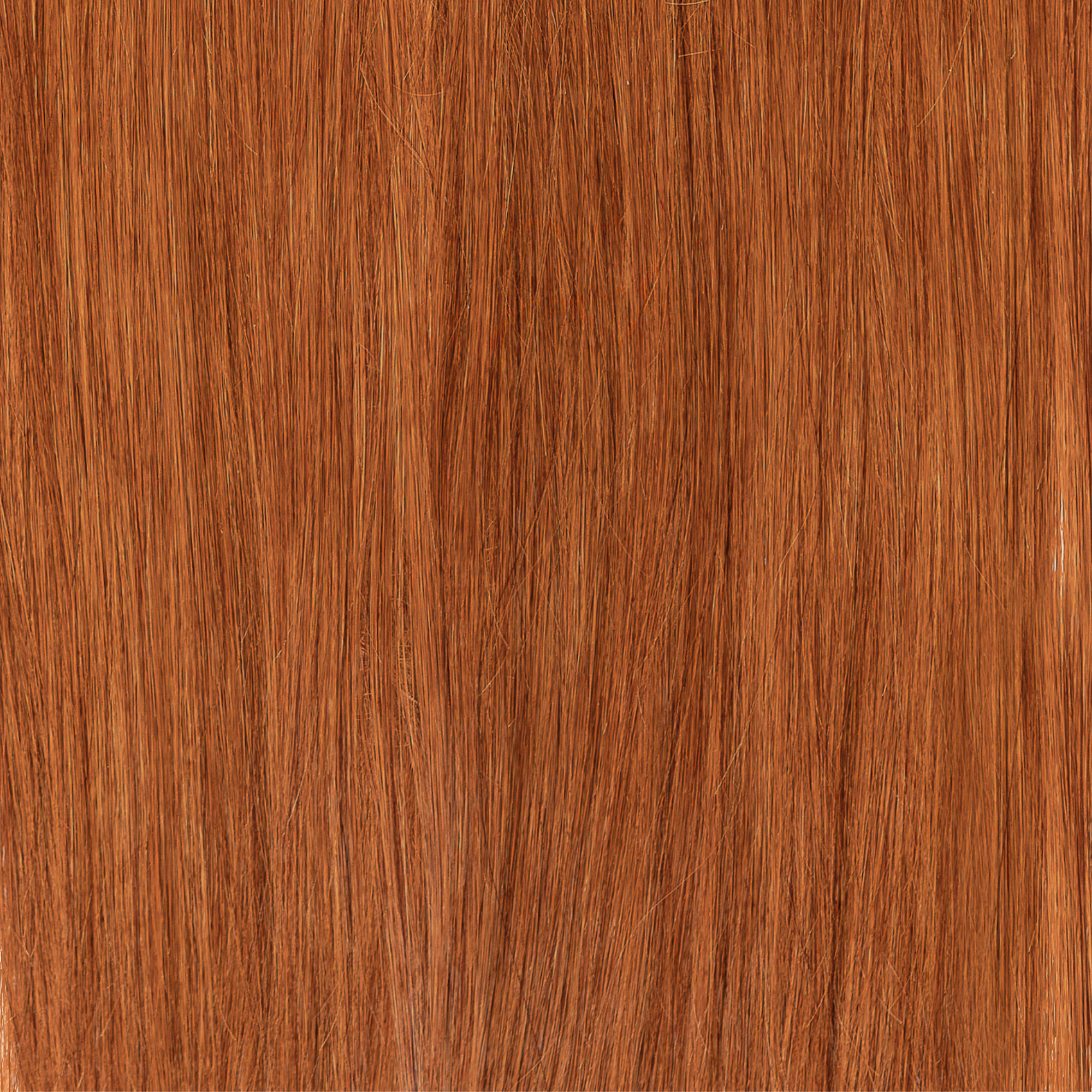
The Role of Stress in Hair Loss: Prevention and Management Techniques
- Irene GilmanHave you ever looked in the mirror after a stressful week and noticed a little more hair than usual in your brush? You’re not alone. Stress and hair loss in females are closely linked. Stress can take a toll on your body in ways you might not even realize—and yes, stress can cause hair loss, it can be one of the first things to show it. But don’t worry, this is not a lost cause. In this post by Atelier Hair Extensions, we’re going to break down how stress affects your hair, how to treat it, and (most importantly) how to manage stress in a way that helps both your mind and your voluminous bounce back.
Does Stress Cause Hair Loss?
Let’s get real: we all know stress isn’t exactly great for our well-being, but can it actually cause hair loss? Unfortunately, yes. When you’re stressed, your body gets all out of whack, triggering a bunch of different responses— including pushing your hair into a sort of "rest mode." This is called the telogen phase, where your hair stops growing and starts falling out.

Hair loss due to stress might not happen right away—sometimes it takes a couple of months before you notice more hair on your pillow or in your brush. But once stress starts affecting your hair growth cycle, it can feel like a never-ending cycle of shedding and stress. But here’s the silver lining: once you manage the stress, the hair loss can stop.
Types of Stress-Induced Hair Loss

Not all stress-related hair loss looks the same, and understanding the difference is key to figuring out if it's hair loss after stress and how to deal with it:
-
Telogen Effluvium: This is the most common type, where stress causes a bunch of your follicles to go into the resting phase, leading to excessive shedding. If you’ve been under a lot of pressure lately—work, life, or both—this could be the culprit.
-
Alopecia Areata: Less common, but still possible. Stress can sometimes trigger an autoimmune response where your body attacks its own follicles, causing bald spots or thinning.
- Trichotillomania: This one’s psychological—stress and anxiety can lead some people to compulsively pull at their strands. It’s often used as a coping mechanism for dealing with heightened emotions or stress.
Each of these types has its own pattern, but all share a common root: stress.
How to Treat Stress-Induced Hair Loss?
So, what can you actually do about women's hair loss from stress? The good news is there’s a lot you can do to stop stress-induced hair loss in its tracks—and get your hair back on the right track.

-
Start with Stress Management: Yeah, I know—it sounds obvious, but tackling the root cause is step one. Finding ways to lower your stress is key to reducing shedding. Whether it’s meditation, yoga, or just taking a 5-minute walk to clear your head, taking a step back can work wonders for your locks and your mindset.
-
Eat Better, Feel Better: Stress can mess with your body in so many ways—including your hair. Eating foods rich in biotin, vitamin D, zinc, and iron can help keep your strands strong. I know it’s not always easy, but focusing on nutrient-dense meals (like leafy greens, eggs, and nuts) can give your hair the fuel it needs to thrive.
-
Be Gentle with Your Hair: When your hair is already stressed out, the last thing it needs is more damage. Skip the heat tools for a bit and opt for natural styles. Avoid tight ponytails or styles that pull on the roots. Give your strands some love and attention by using gentle, sulfate-free shampoos and conditioners to keep it hydrated and healthy.
- Consider Hair Growth Treatments: If you’re really noticing thinning, there are treatments you can try to speed up the process. Minoxidil, for example, is a topical treatment that can stimulate the follicles. Always check with a dermatologist to figure out what’s best for you.
Stress Management Tips
Now, I know we can’t always avoid stress—life happens. But here are a few easy ways I’ve found to help keep it in check so chronic stress hair loss doesn’t wreak havoc on my hair (or my life):
-
Mindfulness: Honestly, mindfulness has been a game-changer. Just a few minutes of deep breathing or focusing on the present moment can calm your mind and lower stress. Plus, it’s great for your hair.
-
Move Your Body: Exercise is one of the best ways to manage stress. It doesn’t matter if it’s a gym workout or a leisurely walk—moving your body helps release those feel-good endorphins that counteract stress and tension.
-
Sleep Like a Queen: Seriously, don’t skimp on sleep. Your body and hair need rest to recover and heal. Make sure you’re getting enough sleep each night so you can tackle the day without all that built-up tension.
-
Talk to Someone: If you’re feeling overwhelmed, don’t bottle it up. Venting to a friend or therapist can be incredibly relieving. Stress loves to fester when we keep it inside, so don’t be afraid to let it out.
-
Take Breaks: Whether you’re working from home or in an office, make sure to step away from your desk when you need to. A quick break to stretch, breathe, or get outside can reset your mind and help keep stress at bay.
Will Stress-Induced Hair Grow Back?
Here’s the good news: yes, your hair can grow back after stress-induced shedding. Once you tackle the stress and get your body back in balance, your hair can start growing again. That said, it’s not always instant—new hair growth takes time. Expect a few months for things to fully bounce back.
In the meantime, if you’re feeling a little self-conscious about thinning hair, don’t forget that there are ways to boost volume in the short term—like Atelier Extensions. They offer 100% natural human hair extensions that are super easy to use and instantly add length and volume. It’s a great way to feel more confident while you work on getting your natural hair back to its best.

Conclusion
Stress can have a serious impact on your hair, but the good news is that you can manage it—and in doing so, you can stop the shedding and help your hair recover. Whether it’s finding ways to lower your stress, improving your nutrition, or giving your hair the care it deserves, you’ve got the power to make a difference.
And if you need a little boost in the meantime, don’t forget about Atelier Extensions. With their natural hair clip-ins, you can add instant volume and confidence while you’re on your journey to healthier hair.
Stress is tough, but with the right approach, you can bounce back—stronger, calmer, and with a head full of beautiful, healthy hair.
